Tervell [he/him]
- 540 Posts
- 22 Comments

 2·11 days ago
2·11 days agoI stumbled on the OST for the unreleased Jazz Jackrabbit 3 recently, and I keep playing this track every now and again, it’s such a banger. This whole subgenre from Epic Games’ early efforts (and stuff those composers did for other companies) is really cool, I with there more games beyond the Unreals and Deus Ex with that style. This track from Unreal 2 is another great one
The cut Downtown theme from Vampire: the Masquerade - Bloodlines, it’s just such a vibe
Fertile Rondo from Bayonetta 3 is also just
 , great 5th Element vibes
, great 5th Element vibesBrain Freeze from Yuri’s Revenge, I miss the “just stick some old movie/TV quotes in” era of electronic music
This track from Descent (this particular recording off a Roland SC-55, I’m pretty sure I originally found it on youtube but it seems like that upload may have been taken down, and a lot of the other ones I could find don’t sound as good)
The whole Neotokyo soundtrack really, just an absolute masterpiece composed for a free mod for some reason. Some standouts: Beacon, Imbrium, Tachi, I just absolutely love the combination of more electronic sounds with strings and piano in a lot of these.
On the more ambient side of things, STALKER has some great ones, Call of Pripyat especially, like the Pripyat theme
it’s difficult to merge that deep simulation system with the capability to do narrative traditional game design
Definitely, games that try this do need to abandon traditional narratives to some extent, which is a big ask for a typical publisher - and unfortunately, the complexity of such systems also puts them out of the reach of indie games which can otherwise afford to be more experimental (although Rain World is supposed to have some pretty amazing AI simulation too) - these kind of projects really have to be AA games, big enough to manage the complexity, but small enough to be allowed to actually do it instead of flattening everything in pursuit of more market share. And the AA side of the industry has unfortunately massively declined.
Space Rangers’ main narrative isn’t really much more than “liberate all star systems and defeat the big boss commanding the enemy” - there’s a bit of detail about the war itself, but it’s mostly revealed in big text boxes, which is moreso lore than narrative I guess. However, it’s still got plenty of stories, thanks to the baffling(ly amazing) decision to just stick like a 100 mini-text-adventure games in as side quests. Get caught by the cops for your piratical crimes and sent to jail? Oh boy, we’ve got a whole text adventure of you having to manage your relations with the prisoners and the guards, choosing who to snitch on, getting into, uh, trained cockroach races (?), ratting out the horrible prison conditions to journalists, and much more! There’s also presidential elections, cooking competitions, just a whole ton of random stuff, I have no idea what they were thinking but it turned out pretty great.
Grand strategy games like Crusader Kings also utilize such dynamic systems to great effect while forsaking typical narrative, but they’re their own niche (and while Paradox does make cool stuff, they do also nickel-and-dime people for like 100 different DLCs per game…)
There’s a neat Russian game series, Space Rangers, which also hit some of those vibes for me.
STALKER early in its development had some marketing blurb about “the AI being able to beat the game without the player”, which is pretty dubious (it may have been sort of technically true at a very early stage when the game didn’t really have much of a story or missions, but it’s definitely not true for the finished product, which does have a more conventional narrative running through the game that you as the player are the driving force of), but in Space Rangers 2 this actually can nearly happen in the lower difficulty modes - you’re not playing as some chosen hero, you’re just a volunteer soldier in a big war, a war which goes on without you - star systems are captured and lost, the military organizes expeditions, technology advances over the course of the game with new weapons and ship models becoming available, and eventually, the AI can indeed whittle the enemy down to pretty much one or two final star systems. It was pretty nifty.
I really wish this whole “simulating deep systems that allow gameplay situations (and maybe even whole stories) to naturally emerge” approach (seen in these games, immersive sims, and I guess to some extent grand strategy games) was more popular, but it is pretty difficult and risky. It’s part of what makes Bethesda’s trajectory even more disappointing - at the time of Oblivion, they were actually exploring some of the same ideas of detailed AI routine simulation as STALKER (just tailored more towards “citizen” NPCs, ones who have homes and jobs and families, and thus routines revolving around that, while STALKER’s guys are more nomadic wanderers getting into hijinks)… but the Radiant AI system didn’t end up going anywhere, it was very jank but instead of trying to further develop it they’ve been progressively cutting it down more and more, and apparently in Starfield there’s not much of it left.


 3·2 months ago
3·2 months agoSilent Storm (and its expansion Sentinels, they’re sold together as Silent Storm Gold Edition), an XCOM-style game set in WW2 (with some sci-fi elements, like dieselpunk mechs that show up later on), featuring awesome environmental destruction mechanics. It’s got a lot of jank, but it’s still really cool.
I assume a lot of these patents wouldn’t actually hold up if challenged in court - but I guess you can file them anyway? I’m not familiar with patent law at all, but seeing as there’s literally millions filed, I would assume there really isn’t that much oversight done at the moment of filing… which seems like a great system to have: just let those with the resources to go through the filing process throw shit at the wall, and leave it to anyone brave enough to get dragged into long legal proceedings to challenge them if they’re bullshit.
this (for European patents) says:
grant of patents does not guarantee validity, and revocation is not uncommon. In fact, a large number of patent litigations result in revocation of patents by national courts. Moreover, according to EPO statistics, 70% of opposed patents are revoked or limited during opposition proceedings
And this is for patents that are actually challenged - who knows how many there are for more obscure areas, just sitting around with no-one (wealthy enough) to challenge them? (and I would assume this is even worse for the US)
I wonder if there’s some kind of legal norm thing of “you can’t have references to common swears in an official document!”

 , or if whoever was writing this just wasn’t paying attention (although maybe it’s some kind of deliberate accent thing, since there’s also dere instead of there? I honestly have no idea where they were going with that particular dialogue, like why pick this specifically to illustrate the concept?)
, or if whoever was writing this just wasn’t paying attention (although maybe it’s some kind of deliberate accent thing, since there’s also dere instead of there? I honestly have no idea where they were going with that particular dialogue, like why pick this specifically to illustrate the concept?)

 5·2 months ago
5·2 months agoI assume so. There might be more information on the Chinese side of the internet, what I was able to find from a cursory search is that there isn’t a date announced yet (https://www.163.com/dy/article/JC71EEQ10511B8LM.html)

 3·3 months ago
3·3 months agoNot sure, the demos I’ve played are pretty vague about the lore. I think the devs are Polish, so who knows.

 6·4 months ago
6·4 months agoeither he doesn’t see this as a negotiation (in which case he has a middle-school understanding of civics and should get the fuck off his high horse about it)
He doesn’t even understand the most basic facts about the legal system in question - he was going on about “b-but what if it sets a bad precedent”… the EU does not use fucking common law (completely, now that the Brits are out). They don’t give a shit about precedents (well, at least they give less of a shit than a common law system would)!
Yeah, some of these don’t fit so well. Metro isn’t open-world either (at least until Exodus, and I guess that’s more semi-open: still a linear sequence of levels, just with some of them being larger and more open), Tarkov I think had some ambitions for being open-world but that hasn’t happened yet (and probably never will given how that game’s development is going), and I’m not sure how well This War Of Mine fits into what people typically envision as the open-world framework.
A few of these should probably be swapped out with the Witcher 1&2, and maybe Boiling Point as a more obscure entry. Or just the “open-world features” part be removed from the description.

 28·4 months ago
28·4 months agoIt’s just another symptom of the games industry continuing to seek prestige and mainstream approval by aping existing artforms like film. It’s disappointing, but I guess it’s working out pretty well for them (apparently there’s no greater sign that you’ve “made it” as a work of art than getting a TV show adaption
 )
)

 1·4 months ago
1·4 months agothe cool thing about this one is it was apparently recorded live - not for any particularly good reason, but just because the sole programmer (and later co-founder of Interplay, Rebecca Heineman) had to make the entire port in 10 weeks and didn’t have the time to write the appropriate music driver for the 3DO, but luckily the 3DO happens to have a CD drive

 2·5 months ago
2·5 months agosome fusion suggestions:
T SQUARE Crown and Roses Live in Tokyo 1995 (love the combo of an EWI and a brass band here)
Casiopea - Once in a Blue Moon
Casiopea - Twilight Solitude *Live 1985*
something modern and weirder:
exigence mvmt 1 - [have you ever had a dream like this?] MxE live @ roulette

 4·5 months ago
4·5 months agoHammer & Sickle, a rather interesting Russian turn-based squad tactics game. It’s sort of a sequel to Silent Storm, and that one seems to be decently well-known, at least among fans of the genre, but H&S is a lot more obscure.
There’s some caveats, namely that the difficulty can get kind of bullshit at times, and the quest design is pretty harsh (with a lot of missions having hidden time limits), but it gets a lot of bonus points in my book for having you play as a communist agent fighting a neo-fascist conspiracy in West Germany, and actually bringing up stuff like Western countries recruiting Nazis for their intelligence services. And the gameplay’s still pretty solid even with the difficulty balancing issues, although the good parts are mostly inherited from Silent Storm.
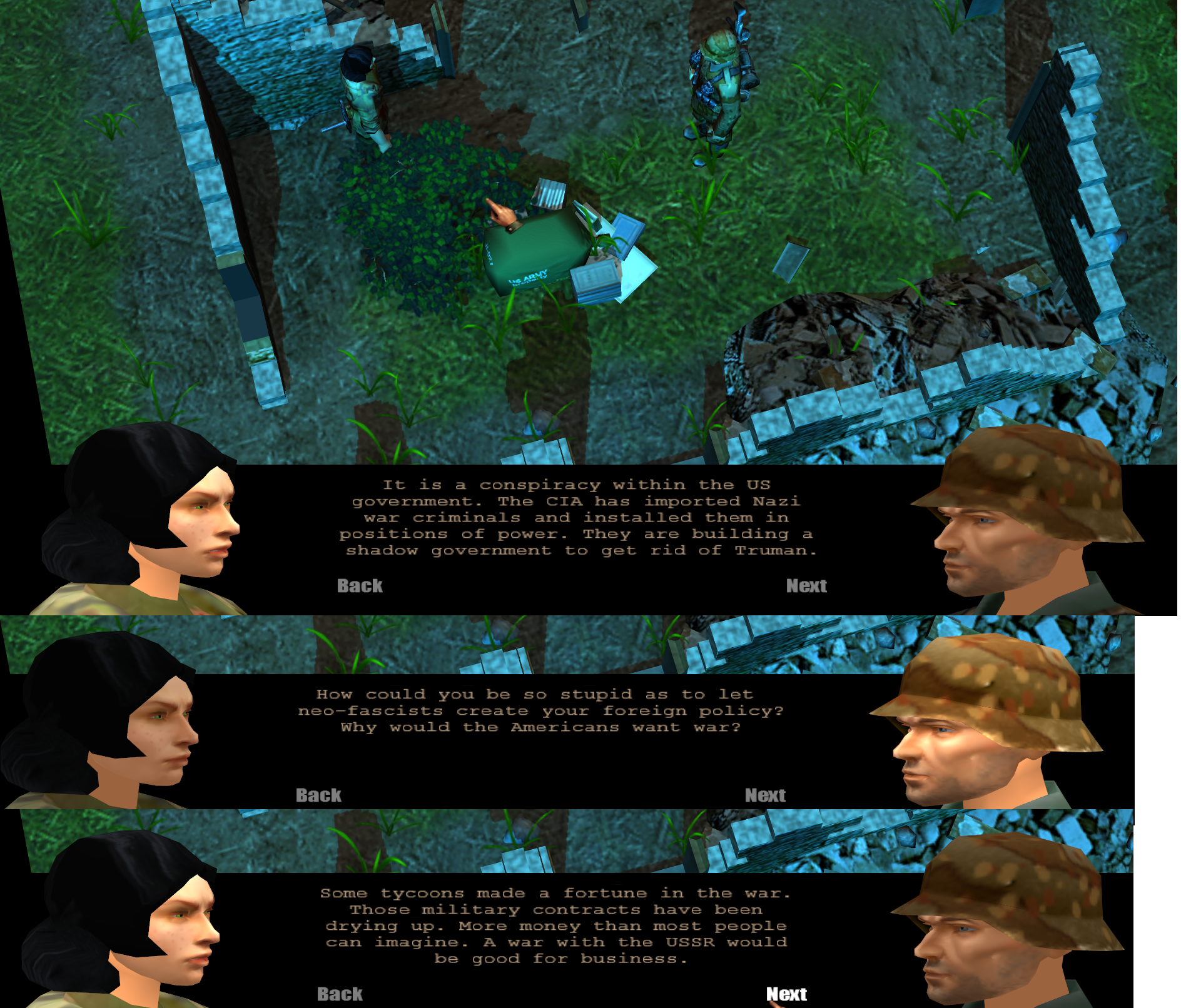
I also find it really interesting from a game-design perspective, in that it’s a relatively short game (by the standards of the genre at least, it’s still a lot more than, say, a CoD campaign, especially if you spend a bunch of time running around with no idea what you’re supposed to do) but with a ton of reactivity and alternative paths. Yes, there’s hidden failure conditions all over the place, but the game doesn’t actually just end - each one of those is its whole alternate plot branch.

 4·5 months ago
4·5 months agoThe older Total War games have a ton of great mods, Medieval 2 in particular. There’s a ton of amazing mods, both historical (like The Italian Wars for pike-and-shot action) and fantasy (like the LOTR mod, Third Age: Total War).
The various Paradox grand strategy games are great too.

 6·5 months ago
6·5 months agoYeah, I don’t care about having an easy mode - just give me access to the developer console (or even just some config files, I know how to use a text editor) and I’ll make my own easy mode, thank you very much (or maybe I’ll make a hard mode, you don’t know). I can actually respect having a single difficulty mode, since balancing several is a genuinely difficult task - and the vast majority of games with multiple modes don’t really do this, they just fall back on the classic solution of “give the enemies more HP and damage”, and “I have to hit this enemy 100 times instead of 10” isn’t a particularly compelling form of difficulty. Best case scenario would be customizable difficulty, but that’s obviously more effort on the part of the dev and I can’t demand that - but again, if you just give me access to some way to tweak the game, I can do some of it myself!
I think part of the problem here is that as games are a new medium, we’re still in the process of developing the language we analyze and critique them with (and thanks to anti-intellectualism rampant in the community, it’s going slow, people got mad about “ludonarrative dissonance” which wasn’t even that fancy of a term, like “ludo”'s Latin but “narrative” and “dissonance” are perfectly normal and clear words), and as a consequence a lot of people are falling back on the existing analytical techniques we have. Except the core feature of the artform, the interactivity, kind of changes everything - people love to go on about “artistic vision”, but in an interactive medium, the way you experience that artistic vision can be fundamentally different than it might be in a book or a movie.
If you’re looking to provide a tightly-controlled experience, where every single moment is delivered perfectly according to your “vision”… then games just aren’t the right medium, and trying to do this anyway is how we end up with cinematic AAA slop that constantly takes away control from the player for a cutscene every few minutes and fails you in missions for the slightest deviation from the script. Games actually continuing to develop as a medium requires accepting this interactivity and its consequences, and playing to its strengths rather than restricting it so you can make a mediocre movie with gameplay segments in between the scenes. And part of accepting the interactivity is changing our understanding on what’s the “right” and “wrong” way to experience a game - it’s significantly more difficult to actually define those concepts here than it would be for, say, a movie.
And besides - your game probably isn’t some perfectly-balanced, completely coherent masterpiece, especially if it’s some big AAA RPG - no work this massive, made by hundreds of people under time constraints (or dozens of people under even worse time constraints, since you’re a AA developer and if you don’t release this one on time you’re going bankrupt) is going to be. You’re going to have that one mechanic that sounded cool at the time but doesn’t really fit well with the rest of the game, that one level where you ran out of time and just plopped some enemies down without much thought, that one annoying puzzle or trap that you thought was simple but turns out to be frustrating in a bunch of subtle ways that you missed because you’re not Valve and you don’t have the luxury of just running a gajillion playtests. Going “damn, this sequence/boss is really hard, I’m just not having a good time here” and wanting to turn the difficulty down for a moment isn’t necessarily violating some great artistic vision - maybe the sequence actually just sucks, and doesn’t in any way represent what the devs intended for it because they just ran out of time.

 2·5 months ago
2·5 months agoDeus Ex has a few great ones, Nihilum, 2027 & The Nameless Mod are all pretty good if you’re looking for more imsim content
Half-Life of course has a pretty massive modding community, and they’ve made a lot of good stuff over the years - Echoes and Field Intensity for the 1st game and Entropy Zero 2 for the 2nd are basically on the level of proper expansion packs. Minerva, Mission Improbable, Uncertainty Principle and Downfall (all for HL2) are somewhat shorter, but still really good. There’s also new campaigns for the Portal games, but I haven’t gotten around to playing those yet.
Mount & Blade has a ton of total conversions, for various historical periods and fantasy settings
Medieval 2 was already mentioned, so some other cool mods for it are The Italian Wars and 1648, for the pike-and-shot fans among you
The Blizzard RTS games have a ton of custom campaigns, although I haven’t played many yet. StarCraft 2 in particular has recently been having a ton of new campaigns made (although mostly in the format of overhauls of the existing campaigns, rather than being entirely new missions, but they can still be pretty extensive with the new units and mechanics)
MGS V has had a decent amount of modding done to it too - nothing too massive, since the modding tools are very limited, but Infinite Heaven allows you to tweak a whole bunch of stuff (and, in combination with some other mods, significantly lighten the grinding, which I probably wouldn’t have been able to stomach the game without), and allows people to add new custom side-ops

 3·5 months ago
3·5 months agoI haven’t played Elden Ring, so I can’t say for sure, but I don’t think there’s anything other than maybe showing a few bosses. It’s mostly a humorous video poking fun at a certain segment of the Souls games’ fanbase
holy shit they made Metal Gear Solid VR training but for being a retail employee

THEY EVEN HAVE AN AI RECREATION OF THEIR FOUNDER, they’re just actually doing MGS2

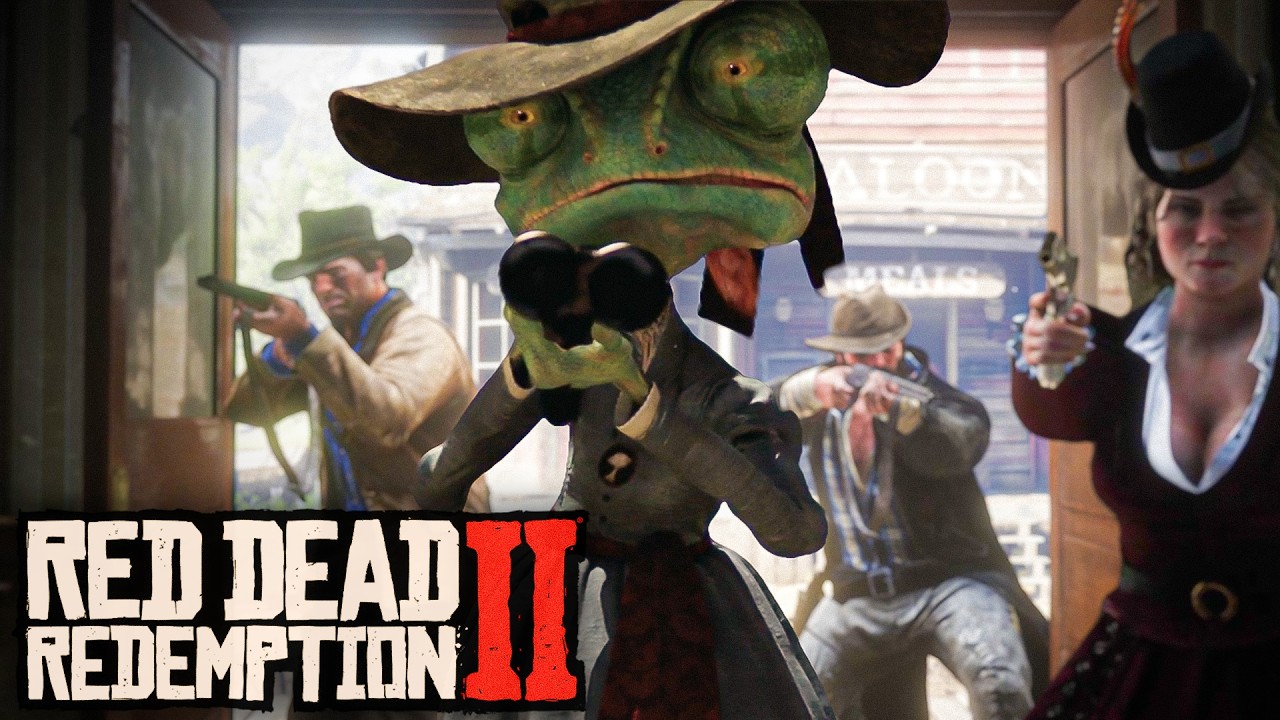
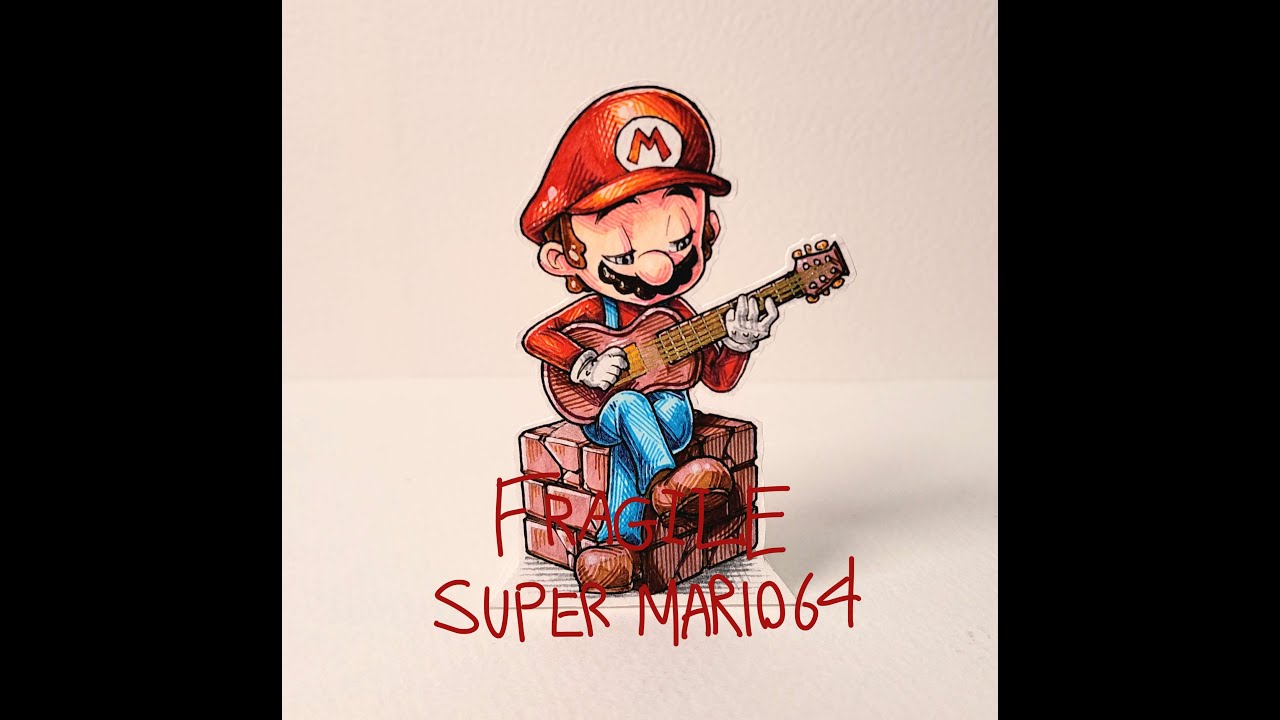

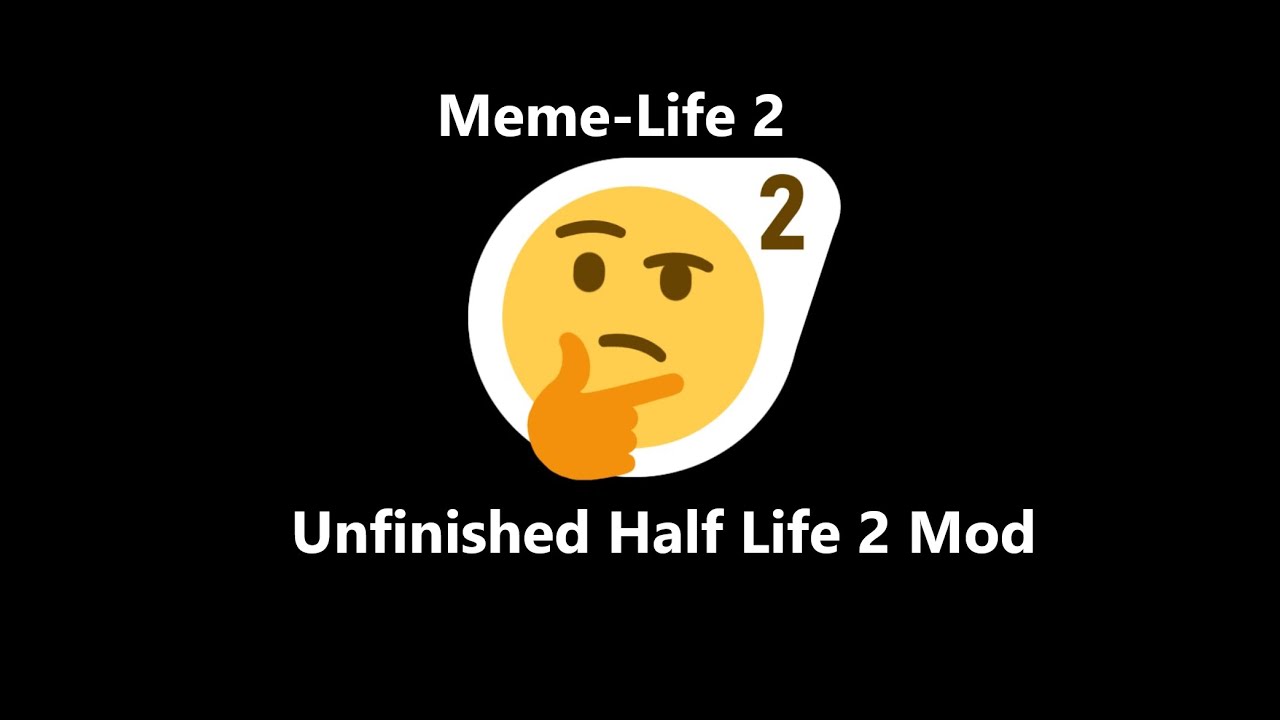
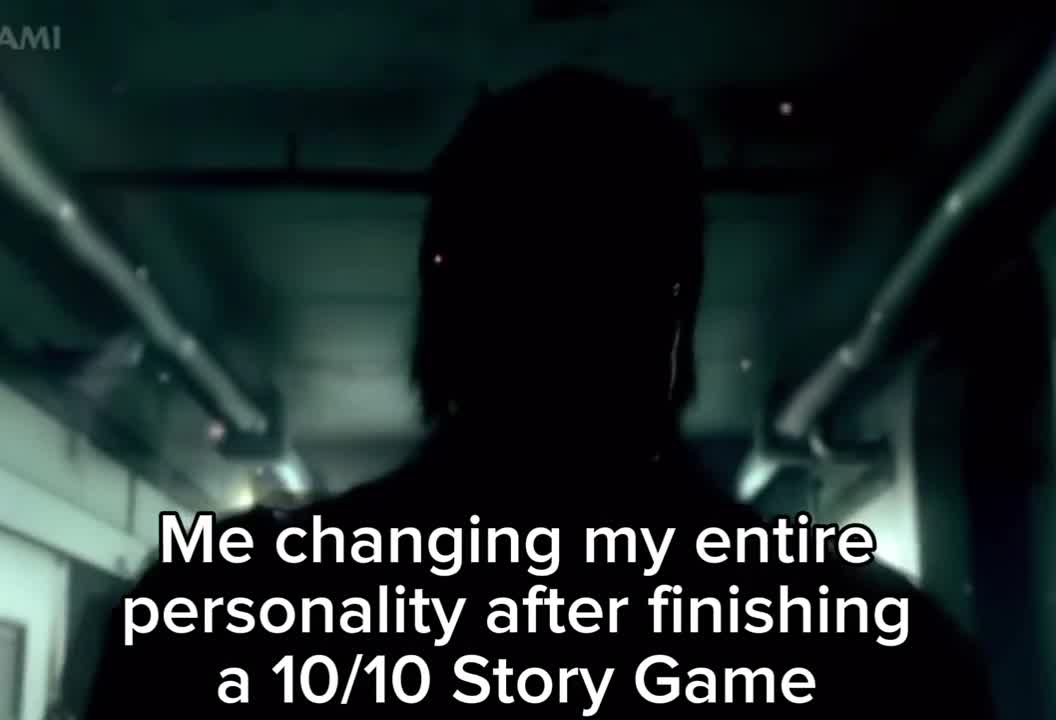










Gotta be Pripyat in Call of Pripyat, it’s maybe a bit too empty, but that adds to the atmosphere to some extent. That’s something I actually really appreciate about CoP, it doesn’t feel the need to throw enemies at you nearly everywhere you go, it’s content to just let you wander around a pretty much empty factory complex and jump at shadows.
Limansk from Clear Sky I like conceptually, but the actual level in-game is mostly a linear shooting gallery, unfortunately. But still, I’m just a sucker for exploring decaying urban environments